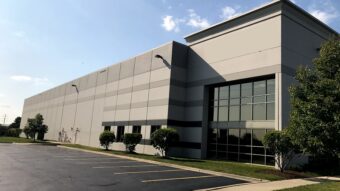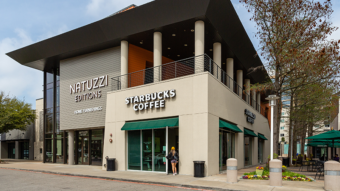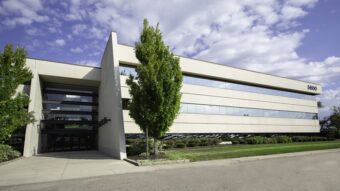By Aaron Lanski, Managing Director, Chicago office of BMO Harris Bank
Over the past few years, economic and demographic trends have led to what’s known as reurbanization—the movement of residents from the suburbs back to urban areas. Because much of this activity involves developing communities that had previously been neglected, it’s providing opportunities for commercial real estate firms.
Since the 1920s, the suburban population growth rate had consistently outpaced big cities. Residents were attracted to the idea of safer, quieter communities, getting more real estate for their money and access to better school systems for their children. Since 2011, however, the annual growth rate of cities has surpassed the suburbs, according to U.S. Census Bureau data.
Several factors are at play here, including the recent recession and housing crisis. With steep declines in housing values, homeowners are seeking property with more stable prices. High fuel costs are also a factor in homeowners looking to downsize, while high gasoline costs have workers looking to live closer to their jobs and retail centers.
As for demographic trends, some baby boomer retirees are downsizing and moving to cities to be closer to retail and cultural amenities. Meanwhile, younger home buyers prefer urban locations over moving to the suburbs.
Opportunities spawn more opportunities
All of these factors are driving the development of multi-family housing units. Adaptive reuse is becoming a popular tactic in multi-family housing development, as city governments look to revitalize long-neglected areas. And once multi-family units have been built, that drives opportunities for retail development. Retailers are typically attracted to urban sites because they provide more predictability because of their known population densities and traffic patterns.
“It seems that retailers are more open to urban sites, and we are focused on looking at great urban sites that work for retail,” says Howard Paster, president of Paster Enterprises, a St. Paul, Minn.-based retail shopping center developer. “With the projected population increases for Minneapolis, St. Paul and the first-ring suburbs, retailers are taking notice of this shift.”
Mass-transit development represents another opportunity for commercial real estate firms. Because younger urban residents are less likely to own a car, public-transit options become critical and, in turn, encourage further urban development. In the Twin Cities (Minneapolis and St. Paul), for example, a new light-rail system connecting the two central business districts will be completed this year. The project has already helped support adaptive reuse projects—in which old office buildings have been converted into rental apartments—along the light-rail line and in both downtown areas.
Rewards vs. risks
When the economy is strong, there’s plenty of demand for luxury multi-family units with top-shelf amenities. But as my colleague Mark Midtdahl points out, it’s difficult to forecast whether there will be enough ongoing demand to support the higher rents of these developments. Similarly, over-development is another concern.
Midtdahl also notes that there’s sometimes a disconnect between the city’s goals and requirements versus what the market will bear. Developers, he says, have to find a way to balance the city’s needs and what makes sense for the project from a market standpoint.
Also, reurbanization projects often include development of former industrial properties that may require environmental cleanup. This, in turn, could necessitate additional due diligence and higher contingencies within the budget for unexpected project costs. Such challenges underscore why it’s important to work with partners who are experienced in reurbanization projects.
“I think the biggest challenge in reurbanization projects are the unforeseen costs,” says Tony Kuechle, project manager at Sherman Associates, a Minneapolis-based commercial real estate firm that specializes in urban redevelopment. “I also believe that experience is the only way to navigate these challenges. You gain the knowledge to identify and test for anticipated issues—environmental, structural, entitlement, and so forth. You also know to carry that extra contingency.”
As more people reverse course and choose large cities over the suburbs, commercial real estate firms will find plenty of opportunities. The trick is in navigating the risks and costs involved.



